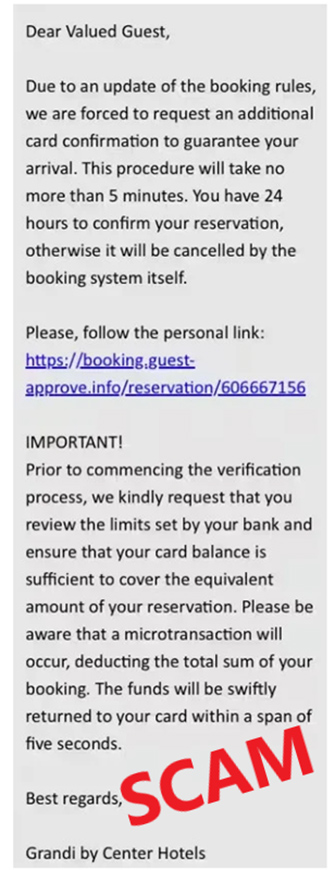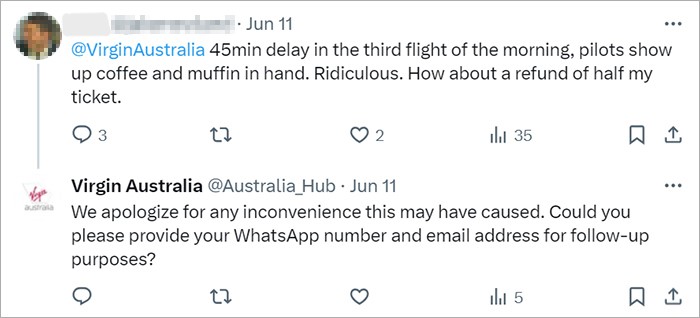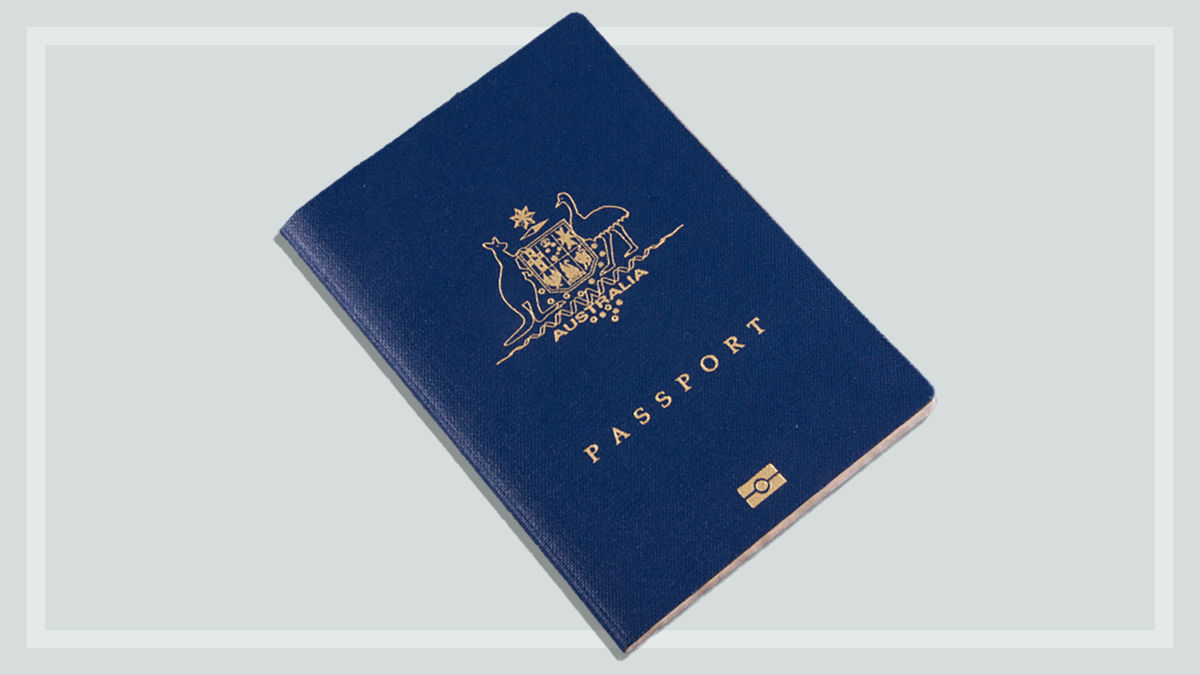Get our independent lab tests, expert reviews and honest advice.
Travel scams to avoid this Easter

Need to know
- Easter is a popular time for holidays, meaning it can also be a profitable period for scammers with well-worn ways of stealing from travellers
- Criminals have been known to create fake accounts on booking platforms like Airbnb and Booking.com, or hack into legitimate profiles on these sites to steal from holiday makers
- We've got tips on how to spot these scams and others targeting travellers in Australia and overseas
On this page:
- 1. Phony prizes
- 2. Fake listings
- 3. Hacked hotel profiles
- 4. Bogus sites and fake social media accounts
- 5. Overseas travel scams
Planning a trip this Easter? You’re not alone.
Australians regularly spend billions of dollars on travel at this time of year, as we take advantage of public holidays and a break from school to explore, either domestically or overseas.
As a new holiday approaches, many of us will be opening our wallets, logging onto popular sites such as Booking.com or Airbnb, and searching for travel advice on social media as we gear up for some time away.
Scammers have been known to use these platforms and myriad other methods to try to trap unwitting travellers
Unfortunately, scammers are aware of this and have been known to use these platforms and myriad other methods to try to trap unwitting travellers.
We’re breaking down the most common travel cons to look out for, with tips to follow so you can score a scam-free break.
Have you been affected by a scam or seen one you think people should know about? Contact the author.
1. Phony prizes

Even just knowing that many of us are thinking about time away is enough for some scammers to try their luck.
Australia’s Customer-Owned Banking Association (COBA) recently warned of criminals using promises of discounted holiday packages or free travel to steal from aspiring holidaymakers.
COBA says these scammers can reach out to you via unsolicited calls or emails to spruik deals, sometimes claiming you’ve won them as a prize.
Consumer regulators overseas have warned of similar schemes, highlighting that those contacting you about one of these prizes will often demand you pay a fee in order to receive your so-called reward.
Fake travel prize scams have also appeared locally in the form of scratch cards dropped at people’s homes.
The ACCC last year warned Australians who receive a scratchie in their mailbox announcing they’ve won a travel prize that they’re likely the target of a scam.
How to spot a fake travel prize scam
- Be sceptical of unexpected holiday offers and don’t click on any links in emails or text messages you receive sharing these promotions.
- Don’t share any personal or financial details with anyone contacting you about these offers or claiming to be associated with a competition you didn’t enter.
2. Fake listings

Sites like Booking.com and Airbnb have revolutionised the travel industry by allowing regular people to turn their properties into accommodation businesses.
But scammers are also trying to get in on the action and have been known to create fake listings on these sites in an attempt to steal travellers’ deposits.
Tourists in multiple countries have come forward alleging they’ve lost money after booking holiday homes that don’t exist or weren’t actually available when they turned up for their stay.
CHOICE’s UK sister organisation, Which?, last year said it had heard from hundreds of Booking.com customers who’d paid for accommodation that didn’t exist.
Scammers have been known to create fake listings on these sites in an attempt to steal travellers’ deposits
Tourists aren’t the only ones being preyed upon by phony listers – Victoria’s Real Estate Institute recently warned the same trick was being pulled on people searching for rentals in the state.
Airbnb and Booking.com have previously told CHOICE false listings are rare on their platforms and that they work hard to verify properties registered with their services.
How to spot a fake accommodation listing
Scammers pushing phony properties have been known to try to lure in victims with offers many of us might find irresistible – a holiday home in a popular location going for a fraction of the usual price, for example.
So don’t rush into booking deals that seem too good to be true, and perform the following checks before locking in your stay:
- Check the most recent reviews: Fake listings overseas have often been accompanied by a flurry of negative feedback from fellow travellers. Make sure you’re looking at the latest reviews to get up-to-date guidance on a property’s status.
- See how long the property has been listed for: Booking platforms work to take down fake listings but scammers themselves can remove and replace their advertisements quickly. Beware of suspicious listings that have only been live for a short time.
- Stay on the platform: Be sceptical if the person hosting accommodation tries to direct you off the platform (onto private messaging apps, for example), especially when it comes to payment.
3. Hacked hotel profiles

Another scam appearing on popular booking platforms involves criminals hijacking the accounts of hotels and other accommodation providers.
These compromised profiles reportedly then send guests messages or links to impersonation websites designed to steal sensitive information.
According to Western Australia’s anti-scam body ScamNet, this con often begins with accommodation operators accidentally downloading malware or handing over login details for the platforms where they host their property.
Booking.com has emerged as a popular target of this scam, with Microsoft this month warning it had identified a new flurry of emails impersonating the platform being sent to accommodation businesses who use it to list properties.
Microsoft says these messages can carry malware designed to steal credentials that criminals can use to commit fraud.
Once they’ve gained access to a business profile on a site like Booking.com, hackers then dispense messages to the hotel’s guests, giving their malicious missives an air of credibility.
In examples of this scam reported overseas, victims have received messages urging them to update or verify their card details in order to re-confirm or secure their booking.
Victims in Australia have also gone on to lose money and sensitive personal information after clicking on links included in the messages, according to the ABC.
Booking.com tells CHOICE it’s aware that some of its accommodation partners and customers have been impacted by phishing attacks involving malware.
But it maintains the number of accommodation providers affected constitutes a “small fraction” of those on its platform and that it’s making investments to limit the impact of these attacks.
The company has previously advised its booking partners on ways to spot these emails, some of which pretend to come from Booking.com itself.
How to spot a hacked account
- Beware of suspicious messages: Watch out for unusual messages appearing to come from accommodation you’ve booked. Requests to provide card details or other sensitive information via direct message or risk losing your booking are major red flags.
- Don’t click on unexpected links: Beware of unsolicited links included in messages appearing to come from your accommodation. Check URLs carefully for indicators of deception, such as misspelt words or unnecessary complication.
- Follow-up outside the platform: If you receive a suspicious message or link, contact your accommodation provider via details you’ve found yourself (not those listed on its booking site profile) to check if the messages are legitimate.
4. Bogus sites and fake social media accounts
In addition to hijacking legitimate business profiles, scammers have also been known to create entirely fake websites to hook budding tourists.
The National Australia Bank says it’s seen websites claiming to sell cruises and package deals to Disneyland that, in reality, only serve to funnel money to criminal enterprises.
Scammers have also been known to create entirely fake websites to hook budding tourists
The fakery extends to major social media platforms. Last year, CHOICE found accounts on X impersonating major Australian airlines and targeting customers in distress.
These scammers are believed to have used bot technology to prowl the popular platform and then leverage these impostor accounts to respond to customers using the site to complain about the carriers.
Victims have been directed to private messaging services and then to phishing sites designed to steal sensitive information.
How to spot bogus travel package sites
Beware of websites offering travel deals that appear too good to be true – putting the name of the site or tour provider into a search engine followed by the word ‘scam’ should reveal any warnings from fellow consumers.
You can spot if a social media account is legitimate by looking at how many followers it has and when it was created – scam profiles will have very few followers and are often only around for months at most.

5. Overseas travel scams
Due to the ubiquity of major booking sites and social media platforms, you could just as easily find yourself the target of the above-mentioned scams while travelling overseas as in Australia.
But certain scams will only emerge in the course of venturing beyond our shores.
Fake passport schemes
One such recent scam is specifically targeted at Australians preparing to travel internationally.
The Department of Foreign Affairs and Trade (DFAT) last year warned of scammers sending fake emails impersonating the Australian Passport Office.
The emails, claiming to come from the body responsible for issuing and renewing passports, contained malicious links or QR codes leading to web pages designed to steal sensitive personal information.
DFAT says it will never send unsolicited text messages or emails asking you to click on links, but may send links if you ask for a password reset or request other actions.
Travel document scams
DFAT and banks have also warned of websites promising to help you get visas and other travel documents required for certain destinations.
For example, since January, Australians entering the United Kingdom for visa-free short stays need to pay in advance for an electronic travel authorisation (ETA).
The National Australia Bank recently urged people looking to do this to beware of fake websites popping up to take advantage of the new requirement and the visa mandates for countries in Europe.
Travelling with a fake visa, travel permit or international driving permit can land you in serious trouble, so avoid clicking on sponsored links that can appear at the top of search results
In a similar vein, scammers have also been known to run schemes claiming to sell international driving permits (IDP). Some of these sites do provide these materials (at an inflated rate), but others will send you fake documents.
Travelling with a fake visa, travel permit or IDP can land you in serious trouble, so avoid clicking on sponsored links that can appear at the top of results when you search for these documents online and stick to official sources.
DFAT’s Smart Traveller website tells you which countries require a visa or other permit if you’re visiting with an Australian passport and directs you to the legitimate sources for obtaining these materials.
DFAT directs anyone looking for an IDP to apply via the Australian Automobile Association.
Scams to watch out for while you’re overseas
Depending on your destination, there are various scams you might encounter while on your travels.
For info on all the common cons, including ticket, taxi, vehicle hire and card-skimming scams, and what to do if you run into trouble overseas, see DFAT’s travel scam guide.






